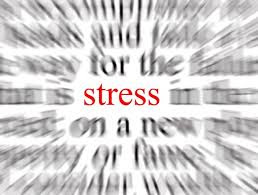In our current climate it’s rarer to find someone who isn’t feeling stressed than it is to find someone who is.
Just about everyone you meet is working long hours, concerned about their finances, or struggling with a difficult relationship or personal issue. Whatever the issue, it’s not too much of a stretch to say that most people can benefit from making more of an effort to relieve stress throughout the day.
Whether you’re going through a particularly difficult time and need some extra positivity or are just trying to feel your best, listed below are five things you should be doing on a daily basis to relax and keep stress away.
The Problem with Stress
While occasional (or acute) stress is not a problem -- in fact, it’s healthy -- chronic stress wreaks havoc on just about every system in your body. Chronic stress contributes to a variety of health issues, including the following:
· Increased risk of high blood pressure and heart disease
· Musculoskeletal disorders
· Poor respiratory function
· Poor hormone balance
· Elevated blood sugar
· Gastrointestinal issues
· Poor nervous system function
· Reproductive issues (for men and women)
How to Keep Stress Away
As you can see, there are lots of reasons to want to reduce your stress levels. Some of the easiest ways to start doing this include:
1. Move More
Regular exercise has been shown to be incredibly beneficial for relieving stress and minimizing its negative physical effects.
Find some forms of exercise that you enjoy and find a way to work them into your daily routine.
Remember, you don’t have to do intense exercise to see benefits -- in fact, that could end up having the opposite result. Focus on walking, stretching, swimming, and other low-impact forms of exercise, and work in more intense workouts a few times a week for added health benefits.
2. Breathe Deeply
You’re already breathing every moment; why not make it more intentional to experience some stress-relieving benefits while you’re at it?
Simply breathing more deeply can lower your blood pressure and help you enter a parasympathetic (the opposite of “fight or flight,” also known as “rest and digest”) state.
When you’re practicing deep breathing, make sure your breaths are long and slow. Try to make your stomach rise as much as possible before exhaling.
3. Practice SMR
Self-myofascial release, or SMR, is a great way to address the taut muscles that are often brought on by chronic stress without having to drop a ton of money on a professional massage.
You can practice SMR with a foam roller, a massage ball, or a massage stick. The goal is to simply work out muscle knots and promote relaxation in areas of your body that tend to tense up when you’re feeling stress.
4. Write
Writing in a journal on a regular basis has been shown to provide a number of mental and emotional benefits.
Taking some time to write down what’s causing your stress can be a great way to work through the problem and come up with a solution. You don’t have to be that specific though. Any kind of writing can help you relax.
5. Listen to Music
Finally, playing or listening to music can help put you feel more at ease. This can work at any time of day -- on your commute, while you’re working, or when you get home and need to wind down.
Many people tout the stress-busting benefits of classical music, but remember that the type of music doesn’t matter as much as the fact that you’re playing music you genuinely like. So, if classical music doesn’t do it for you, turn on your favorite rock, metal, or hip-hop songs instead!
Conclusion
Keeping stress away doesn’t have to be all about luxurious bubble baths and spa getaways. There are lots of other effective ways to reduce stress without spending a fortune.
Keep these simple stress-busting tips in mind and be sure to practice them on a regular basis -- you’ll be feeling more relaxed before you know it!
Do you have any other tips that have helped you deal with stress?
Photo courtesy of structuralbodytherapies.com



These are great tips on how to alleviate stress, Carol. I find that exercise is the most beneficial for me, although the deep breathing/being intentionally still helps, too.
ReplyDeleteBlessings!
No need to say how much I relate to this article.
ReplyDeleteThank you -- I am glad you appreciated it.
DeleteYour new website looks terrific! Good job!
ReplyDelete